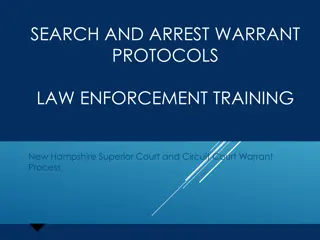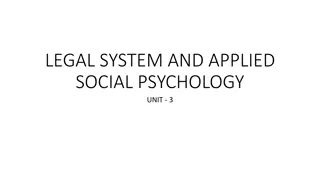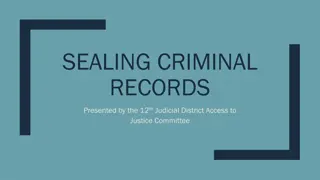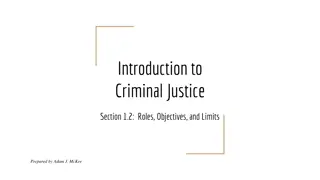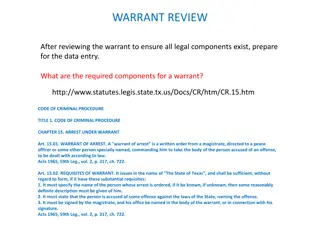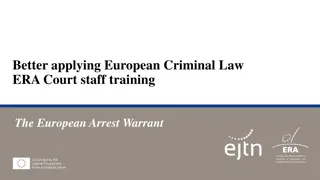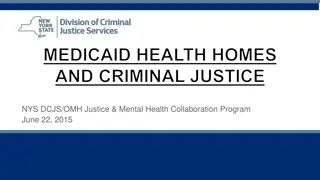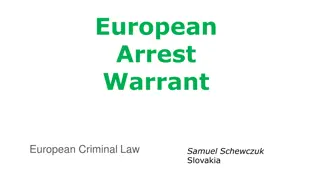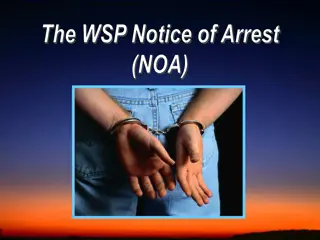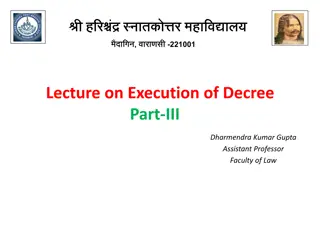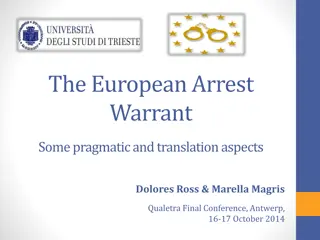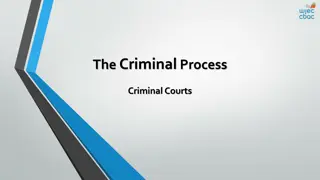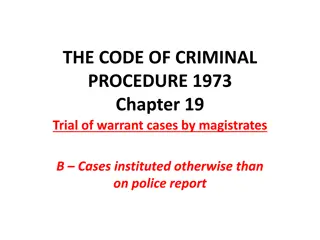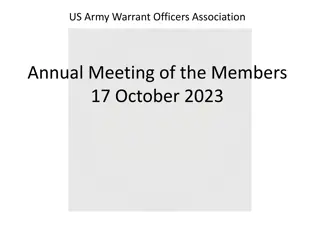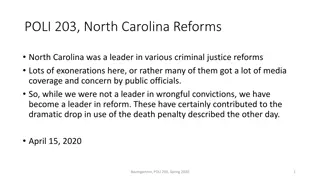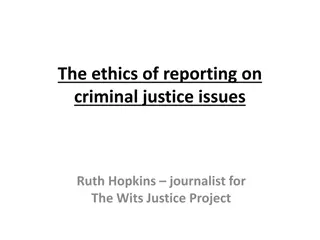The Criminal Justice Process: From Arrest to Warrant
Exploring the key steps in the criminal justice process, from the arrest of a suspect to the issuance of warrants based on probable cause. Learn about the legal procedures involved, including the role of prosecutors, defendants, judges, and law enforcement officers in ensuring justice is served.
Download Presentation

Please find below an Image/Link to download the presentation.
The content on the website is provided AS IS for your information and personal use only. It may not be sold, licensed, or shared on other websites without obtaining consent from the author. Download presentation by click this link. If you encounter any issues during the download, it is possible that the publisher has removed the file from their server.
E N D
Presentation Transcript
REMEMBER!! Criminal Justice Process includes every event from investigation to conviction and punishment At any time during this process: 1) prosecutor may drop a case for lack of evidence 2) defendant can negotiate a plea bargain 3) judge can declare a mistrial if the jury is compromised in some way, shape, or form
Arresting a Suspect Taking a person suspected of a crime into police custody Remember: you can be arrested but not immediately booked for a crime (police usually have 24 hours to either book you or you must be released) Det. Stabler had 24 hours to question Gordon Rickett (above) before Rickett was legally allowed to leave the precinct building
Arrest (contd) By Warrant 1) court order commanding the person named be taken into custody 2) a formal complaint must be filed by the victim or police officer investigating the case 3) the facts and circumstances for the arrest must be sworn to as truthful before the warrant can be issued (known as an affidavit) warrant-arrest-1.jpg An actual arrest warrant issued in the state of California.
Arrest (contd) By Probable Cause 1) PC = reasonable belief that a person has committed a crime 2) Can be established through eyewitnesses and confidential informants (CI must be reliable through past information/tips given to police) Good tips = get out of jail. Bad tips = stay in jail. A judge is often given the task of determining the reliability of a confidential informant for information provided
Probable Cause (contd) 3) Each officer must use their own judgment on determining if PC exists to arrest a suspect (cannot be simply a hunch that suspect committed a crime)
Probable Cause (contd) An officer is permitted to question you at any time; but: 1) you are free to leave or refuse to answer questions if it is simply just talking 2) if you are asked to give identification and you run, you have given the officer PC to arrest you (this includes traffic stops)
Your Rights When You Are Arrested You must be read the charges against you by the arresting officer You must be told of your right to remain silent; if you waive this right, your statements can be used against you during your trial You must be told of your right to legal aid and that you may have an attorney for freeif you can t afford one The officer must confirm that you understand your rights before you are booked How do they deal with people in custody that speak a different language?
Using Force To Arrest Officers may use as much force as reasonably necessary during an arrest Using Lethal Force 1. limited to incidents involving dangerous or threatening suspects (to both officer and/or public) 2. if too much force is used, suspect or family of suspect may press criminal charges or initiate a lawsuit against arresting officer Why are officers sprayed with pepper spray and/or tazed in training?





